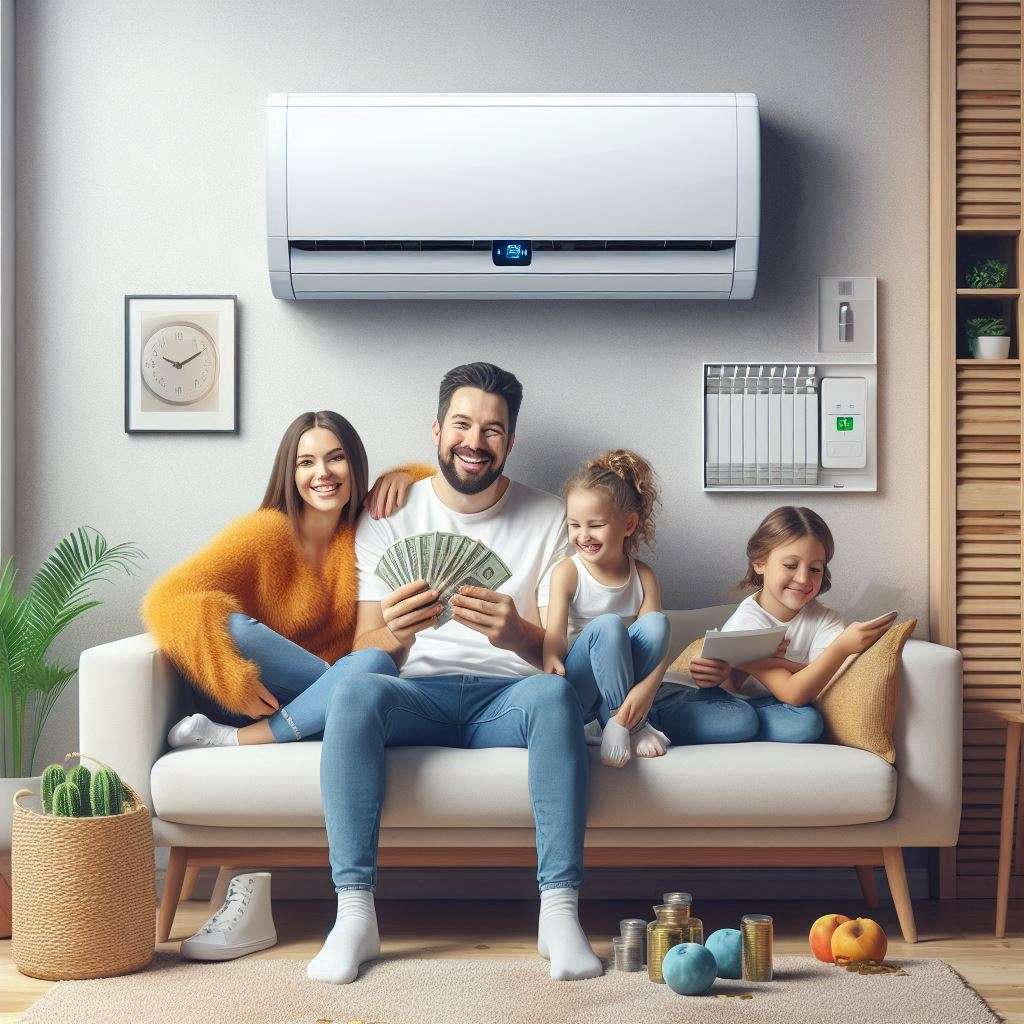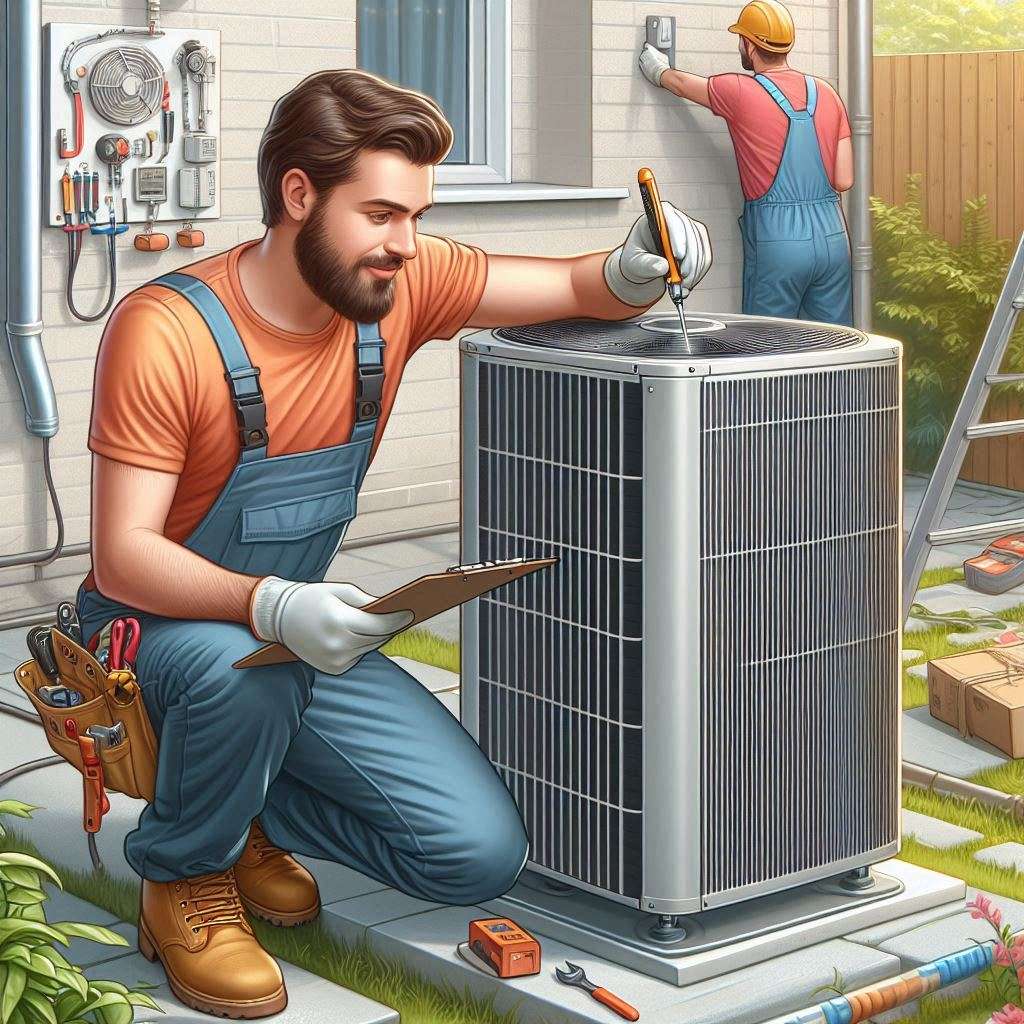When your air conditioner not cooling properly and your home is uncomfortably hot, it can be incredibly frustrating. There are several common issues that might be causing this problem, including dirty air filters, refrigerant leaks, thermostat malfunctions, but there are also more concerning issues. By identifying and addressing these key problems properly and promptly, you can not only enhance airflow and ensure efficient cooling, but also prevent further damage and even possible prevent full breakage.
Below are some common issues to consider if your air conditioner not cooling properly, along with additional details to help you better understand and address the issue.
1. Dirty Air Filters: Most Common Issue When Air Conditioner Not Cooling
One of the most common reasons for an air conditioner not to cool properly is dirty or clogged air filters. When air filters become clogged with dust, dirt, and debris, they restrict airflow through the system. This reduced airflow makes it harder for your AC to cool your home efficiently, causing it to run longer and work harder than necessary.
Solution: Check your air filters regularly and replace them every 1-3 months, depending on usage. Regular filter replacement helps maintain optimal airflow and system efficiency, addressing the issue of your AC not blowing cold air.
2. Blocked Airflow: The Most Common Reason Your Air Conditioner Is Not Cooling
Blocked or obstructed vents, registers, or ductwork can restrict the airflow throughout your home, reducing the overall cooling performance of your air conditioning system. Blockages can occur due to furniture, curtains, or debris in the ductwork.
Solution: Ensure all vents and registers are open and unobstructed. If you suspect a blockage in the ductwork, have a professional HVAC technician perform a thorough inspection and cleaning. This helps improve airflow and ensures efficient cooling, addressing the issue of your AC not blowing cold air.
3. Air Conditioner Not Cooling Because It Might Have Refrigerant Leak
Refrigerant is the substance that cools the air in your air conditioning system. If your system is low on refrigerant, it may be due to a leak. Refrigerant leaks can significantly impact the cooling capacity of your AC and may cause it to blow warm air instead of cold.
Solution: Have a professional HVAC technician inspect your system for leaks and recharge the refrigerant if necessary. They can repair any leaks and ensure the refrigerant levels are correct for efficient cooling, resolving the problem of your AC not blowing cold air.
4. Thermostat Problems Might Also Affect Your AC Performance
The thermostat is the control center for your air conditioning system. If the thermostat is inaccurate or has a faulty sensor, it can lead to incorrect temperature readings, preventing your AC unit from cooling properly.
Solution: Check the thermostat settings to ensure they are correct. If the problem persists, consider replacing the thermostat. Depending on the type, a new thermostat can cost up to $200. An accurate thermostat ensures your system maintains the desired temperature efficiently, addressing the issue of your AC not blowing cold air.
5. Dirty Condenser Coils: Second Common Reason
The condenser coils in your outdoor unit play a crucial role in dissipating heat from the refrigerant. Over time, these coils can accumulate dust and debris, reducing their ability to release heat effectively. Dirty coils force the system to work harder, reducing its efficiency and cooling capacity.
Solution: Clean the condenser coils regularly to remove dust and debris. If you are not comfortable doing this yourself, hire a professional technician. Clean coils help your system run more efficiently and cool your home effectively, resolving the issue of your AC not blowing cold air.
6. Compressor Issues: Most Urgent Issue to Fix When Your Air Conditioner Not Cooling
The compressor is the heart of your air conditioning system, responsible for circulating refrigerant and maintaining the pressure needed for cooling. If the compressor is malfunctioning due to electrical problems or motor failure, it can hinder the cooling process and cause your AC unit to blow warm air instead of cold.
Solution: A professional technician should inspect and diagnose compressor issues. Depending on the severity, repairs or replacements may be needed. Addressing compressor issues promptly can prevent further damage to your system, solving the problem of your AC not blowing cold air.
Additional Tips for Maintaining Efficient Cooling
Regular maintenance and professional assistance can ensure your air conditioning system runs smoothly, keeping your home cool and comfortable.
- Regular Maintenance: Schedule regular maintenance visits with a professional HVAC technician to keep your system in top shape. They can perform a comprehensive check, clean essential components, and address any potential issues before they escalate.
- Keep the Area Around the Outdoor Unit Clean: Ensure the area around your outdoor unit is free of debris, leaves, and other obstructions. This helps maintain proper airflow and cooling efficiency.
- Check for Insulation Issues: Poor insulation can cause your home to lose cool air, making your AC unit work harder. Ensure your home is well-insulated to maintain a comfortable temperature.
- Upgrade Your System: If your air conditioner is old and frequently experiencing issues, consider upgrading to a more efficient system. Newer models are designed to be more energy-efficient and provide better cooling performance.
Conclusion
If your air conditioner is not cooling properly, identifying and addressing these common issues can help you restore your comfort. Whether it’s a simple fix like resetting a tripped breaker or a more complex problem like a refrigerant leak, understanding the root cause is key to getting your air conditioner back in operation.


















